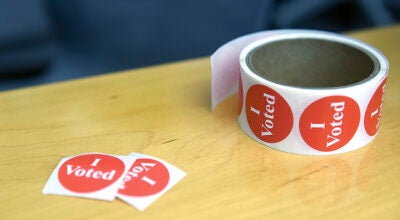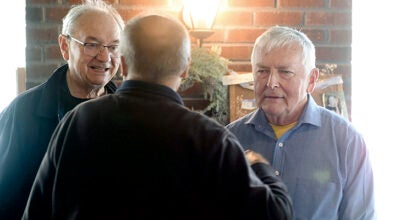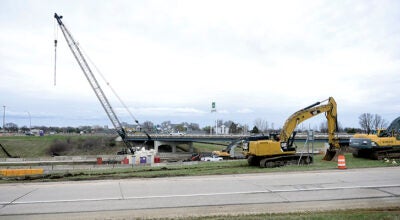Life after the spill
Published 6:02 am Friday, June 11, 2010
The oil spill in the Gulf of Mexico has moved beyond the nation’s southern shores to local BP gas stations, who may be stuck between a rock and a hard place.
Facebook and Twitter users are calling for consumers to boycott BP stations. The only problem is the BP corporation owns very few of the stations. Most are privately owned.
“There’s nothing I can do. I’m stuck right in the middle of this,” said Kermit Watts, owner of Austin Auto Truck Plaza/Watts Cooking.
A number of Facebook pages have started up calling for consumers to boycott BP stations in the wake of the oil spill in the Gulf of Mexico. One Facebook page has more than 520,000 followers.
The pages list BP brands to boycott, and some pages even list the information in multiple languages, since BP is an international company.
“Boycott BP stations until the spill is cleaned up!…FOREVER,” the page read.
Most local BP carriers agree that boycotting gas stations that sell BP will do little to affect the corporation. Instead, it will hurt local store owners like him, said Leonard Soltau, own of LeRoy’s Amoco Food Shop.
“It’s not a good situation, but it’s hard for us to do anything about it,” he said.
Leonard and his wife, Brenda, have owned the station in LeRoy for about 17 years. Like most area BP stations, the store is independently owned. The stations buy BP gasoline to carry the franchise name.
While some people are calling for boycotts, Leonard and Watts said they’ve seen little change in their number of customers, as most people understand there’s little they can do about the spill.
However, Kelly Williams, owner of Kelly’s BP, said he has seen some effect from the spill. While he agreed local business has been steady, he said believes some drivers on Interstate 90 are opting to travel a little further to another station, even if it’s something that’s subconscious.
That doesn’t mean no customers are taking their business to other stations. Watts said he thinks there are people elsewhere, they’re just choosing to do so in silent protest.
While some may argue the local owners should buy gas from a new supplier, that’s easier said than done. Station owners typically sign an agreement with BP for upwards of five years. The owners can’t simply buy their fuel elsewhere, because they’d be subject to penalties, Williams said.
“All you’re doing is hurting local people who pay taxes locally,” Williams said. “You’re not doing a thing to hurt BP.”
Despite expectations that the spill would drive fuel prices up, Soltau said gas prices at his store have actually decreased since the incident.
If the problems in the gulf continues, Williams said some station owners may choose to switch fuel suppliers.
Watts said he understands how people are angry about the continuing spill and the continued failed response.
“It makes me mad as hell, but there’s not much I can do from up here,” Watts said.





